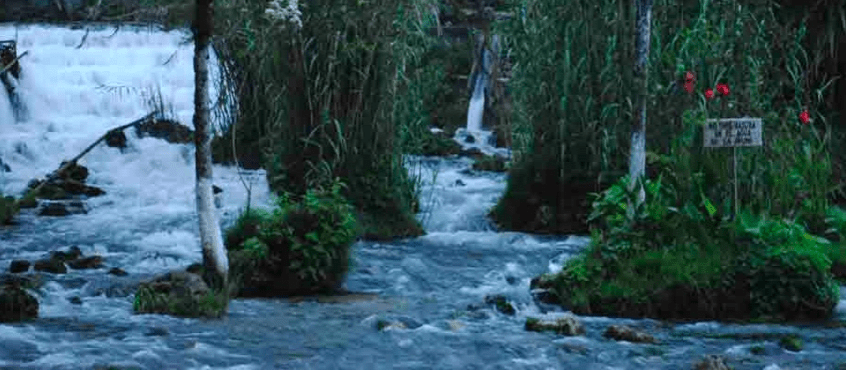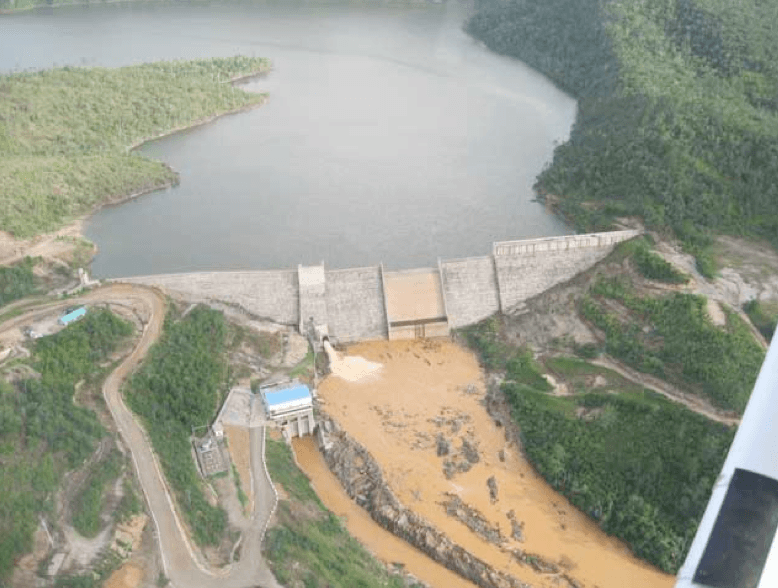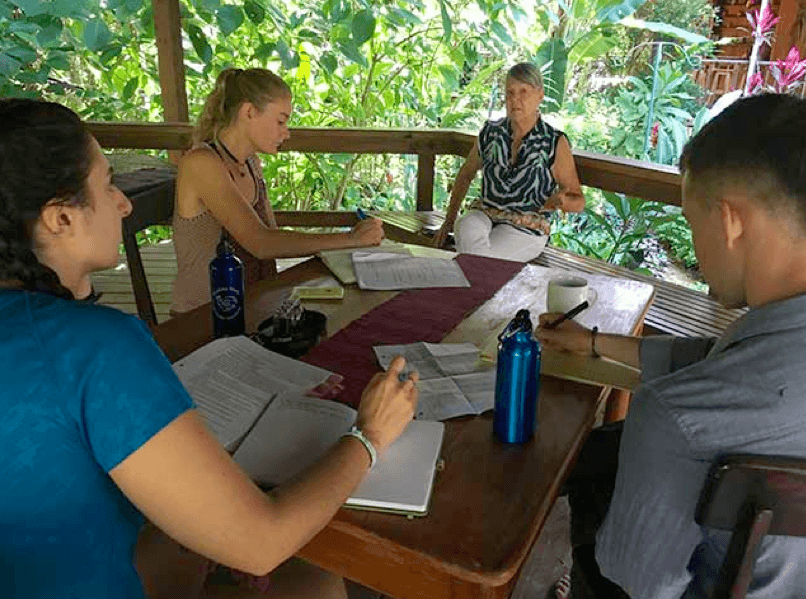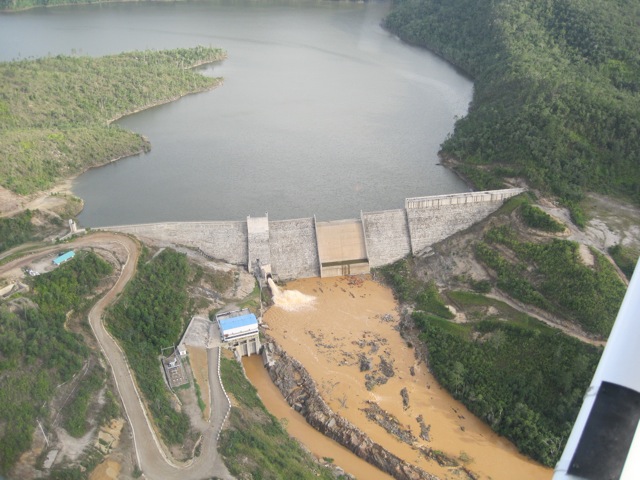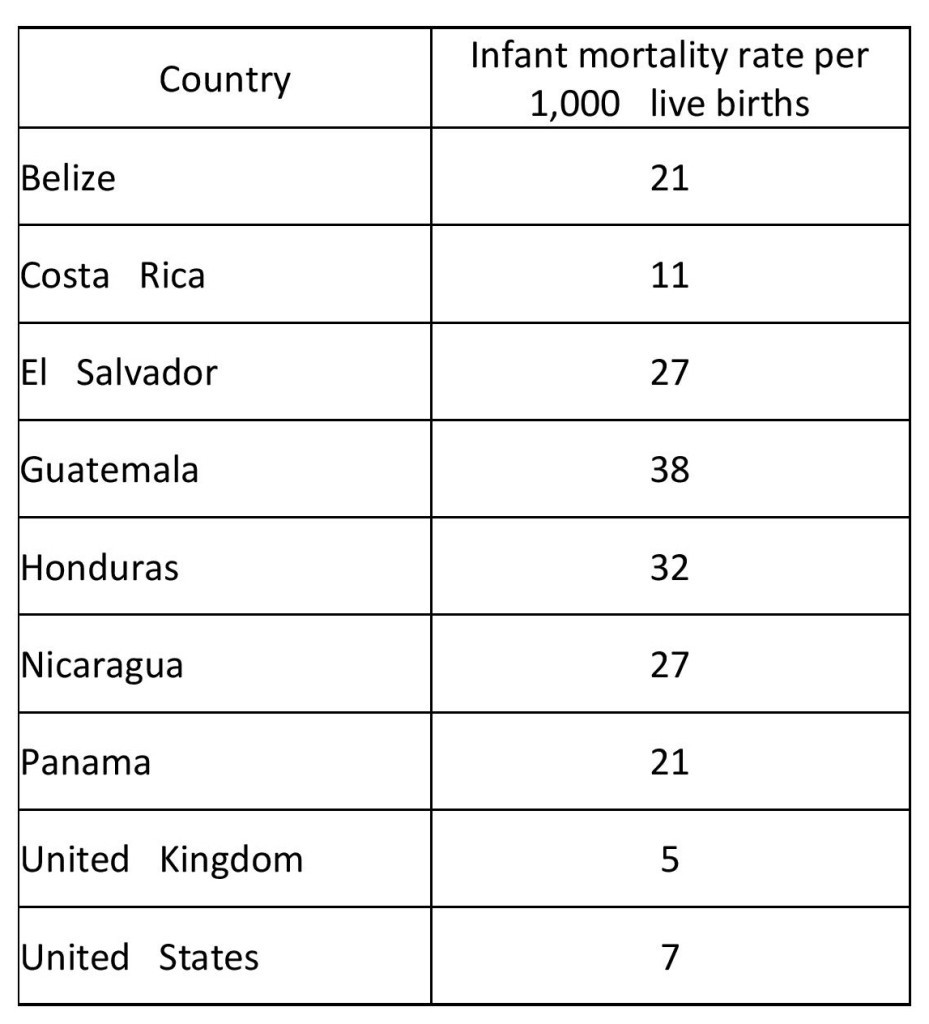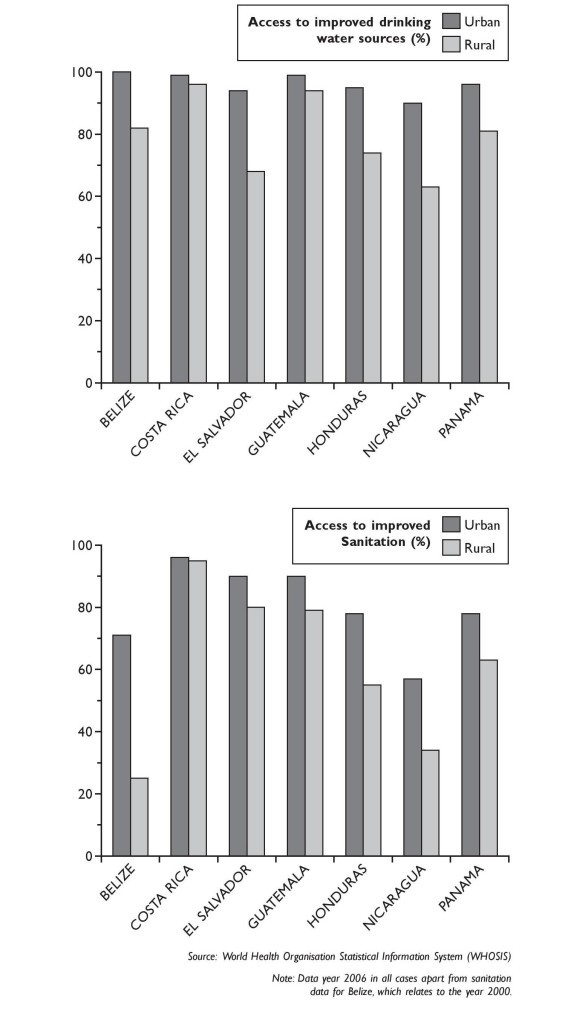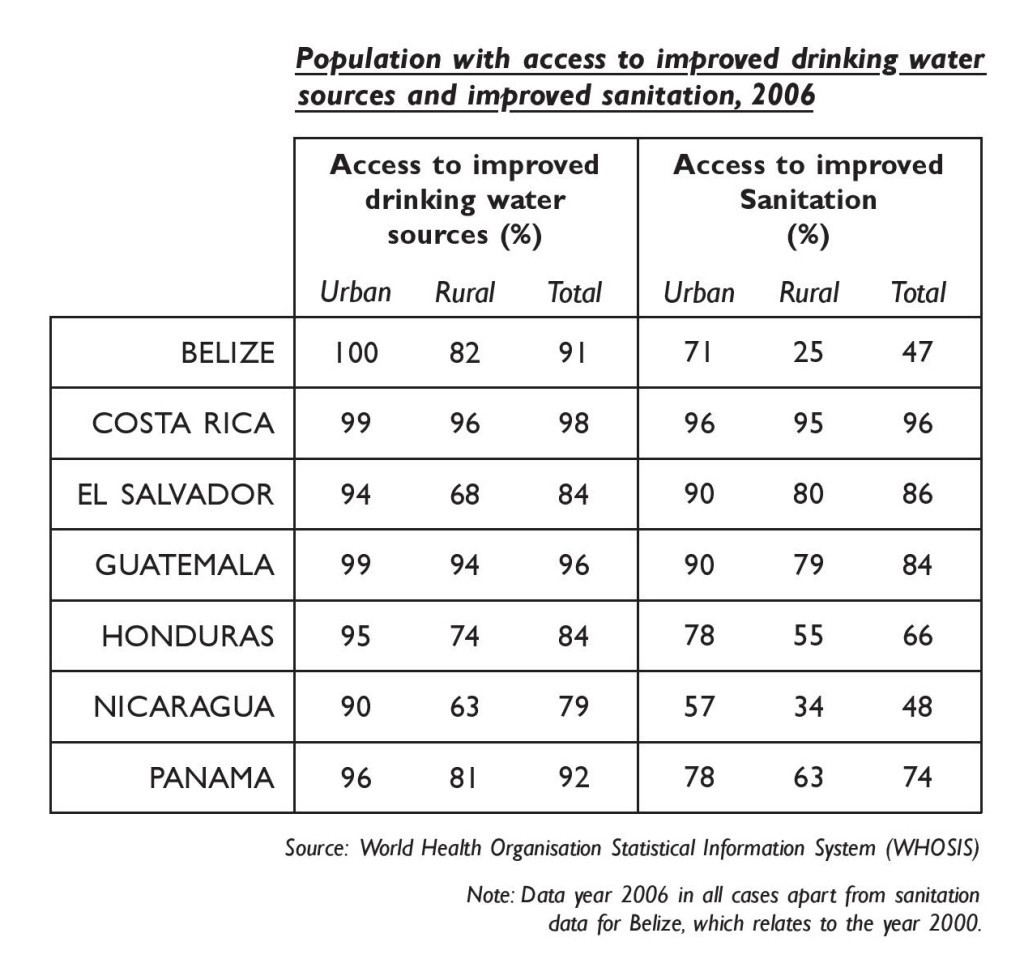JANUARY 26, 2023
The following article taken from inequality.org is by John Cavanagh, a Senior Advisor at the Institute for Policy Studies. We meant to include it in previous additions to The Violence of Development website, but it was missed for a variety of reasons – apologies. We are grateful to John for granting us permission to include the article in the TVOD website.
Key words: metal mining ban; El Salvador; detention of water defenders; mining-related assassinations; Association of Economic and Social Development (ADES); Pacific Rim / OceanaGold.
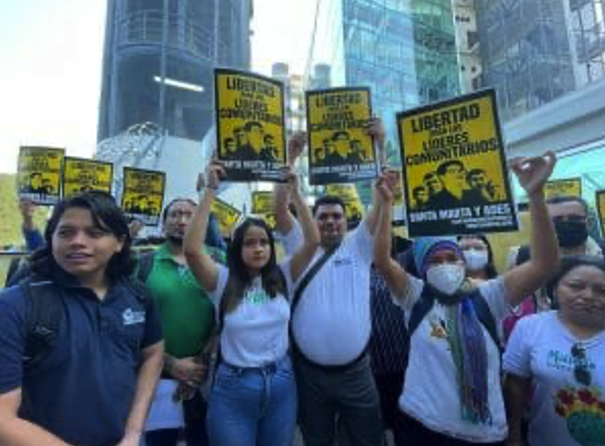
Protestors demanding the release of the five water defenders. Credit: Association of Economic and Social Development (ADES).
Human rights and environmental activists across the globe are mobilizing in support of five men detained in El Salvador on charges that appear aimed at silencing opposition to mining. The arrestees — Miguel Ángel Gámez, Alejandro Laínez García, Pedro Antonio Rivas Laínez, Antonio Pacheco, and Saúl Agustín Rivas Ortega — were among the leaders of a campaign to block mining activities in El Salvador that would have enriched a few while endangering the nation’s water supply.
In 2017, their campaign shook the rapacious global extractives industry to its core by winning the world’s first ban on metals mining. Robin Broad and I chronicled this thrilling victory in our book, The Water Defenders: How Ordinary People Saved a Country From Corporate Greed [published by Beacon Press, Boston, in 2021].
But now it’s clear this David versus Goliath struggle is not over. El Salvador’s Attorney General claims the January 11 arrests are related to an alleged murder over 30 years ago during El Salvador’s brutal civil war. These charges are beyond dubious.
As more than 250 organisations from 29 countries point out in a joint statement, the government has never bothered to prosecute members of the military responsible for dozens of civil war-era human rights violations. These include a 1981 massacre that left 30 dead and 189 disappeared in the arrestees’ community in northern El Salvador.
“This further raises questions about whether the Attorney General’s true motivation is to attempt to silence these Water Defenders, especially in light of the current administration’s crusade to criminalize, persecute, and demobilize its political opponents,” reads the international statement.
Through my 14 years of collaboration with the water defenders of El Salvador, I’ve got to know one of the five men arrested — Antonio Pacheco — particularly well. His story reflects the courage, creativity, and perseverance of a movement that has inspired fellow activists around the world.
For over two decades, Pacheco has led the Association of Economic and Social Development (ADES), the organisation that anchored the fight against mining in the northern province of Cabañas.
The mining corporation that had come to Cabañas was the Vancouver-based Pacific Rim. What they wanted was to extract the rich veins of gold buried near the Lempa River, the water source for more than half of El Salvador’s 6.2 million people.
Pacheco initially thought mining might be good for this economically poor province. But then he learned about the dangers for public health and agriculture from popular educator Marcelo Rivera. They and others, including tireless community leader Vidalina Morales, began informing their impoverished, rural community about the issue. They also raised funds to bring in outside experts, including a leading international hydrologist who issued a devastating critique of the mining company’s environmental impact statement.
In time, the activists built up a National Roundtable on Metals Mining that won over a strong majority of the public and rallied the Catholic Church, farmers, small businesses, and labour and environmental groups to oppose mining.
Then the company struck back. In 2009, Pacific Rim (a Canadian firm later bought by Australia-based OceanaGold) filed a lawsuit against the government of El Salvador, eventually demanding $250 million in compensation for the loss of profits they’d expected to make from their mining project there. For the cash-strapped country, that was the equivalent of 40 percent of the national public health budget.
This legal blackmail occurred amidst an explosion of violence against anti-mining activists, including the murder of Pacheco’s fellow campaign leader Marcelo Rivera. Several people have been convicted of Rivera’s killing, but to this day the “intellectual authors” have never been held accountable.
Pacheco also faced personal death threats. In the wake of Rivera’s assassination, one note read: “The hour has come…[Pacheco] for the bomb in your own house and of your pals, now is the hour you pay for what you did…[You are] the next like Marcelo Rivera.”
Pro-mining forces also tried to buy Pacheco off through offers of prostitutes and other bribes. He didn’t blink. Instead, Pacheco focused on broadening the campaign’s base, building relationships with the right-wing ARENA party’s environment minister, conservative bishops, and other unlikely allies.
He and Morales also encouraged my organisation, the Institute for Policy Studies and MiningWatch Canada, to create International Allies Against Mining in El Salvador, a coalition that has brought outside attention to the campaign and pressure on the mining company.
In 2016, the water defenders who had paid such a high price for their resistance won their first measure of justice: a three-person tribunal ruled unanimously against the mining company. This victory emboldened efforts behind a ban on metals mining, efforts that paid off in 2017 with a stunning, unanimous vote in the Salvadoran legislature.
Now, Pacheco and others who have inspired defenders of water and democracy around the world sit in jail cells.
Why would a government imprison heroes who have saved their country by saving its rivers? El Salvador’s president, Nayib Bukele, is an authoritarian populist who has demonized environmentalists and suspended a wide range of civil liberties, leading to widespread arbitrary detentions.
His targeting of the water defenders could be linked to Bukele’s mismanagement of national finances, in part through his disastrous marriage of El Salvador’s currency to Bitcoin, which has created tremendous pressure to generate revenue from any source — even if it destroys the environment.
Before his arrest, Pacheco was one of several people who had reported suspicious appearances by unknown individuals offering to lease farmers’ land for exorbitant amounts of money and provide funding for municipal social programmes in the mining region of Cabañas. These appearances are just one sign that the Bukele government could be moving toward increased collaboration with transnational mining institutions and overturning the mining ban.
El Salvador-based environmentalist Pedro Cabezas and Canadian journalist Owen Schalk have also reported that two mayors from the Cabañas mining region say they met with officials of the Exports and Investment Promotion Agency of El Salvador who told them that mining will soon be reintroduced.
In their joint statement, the international organisations call on Bukele’s government to “drop the charges against the five water defenders and otherwise release them from prison to await their trial.”
Through incredible courage, backed up by strong international solidarity, these water defenders have won seemingly unwinnable battles against formidable economic and political forces. The fight must continue to gain their freedom and keep mining out of El Salvador.
Notes:
- Robin Broad and John Cavanagh’s book is the definitive story behind the run-up to and the background of El Salvador’s metals mining ban, but the subject is also widely covered in a range of articles in Chapter 5 (‘Mining’) of The Violence of Development website.
- Robin Broad and John Cavanagh, 2021, The Water Defenders: How Ordinary People Saved a Country From Corporate Greed, Beacon Press, Boston.
